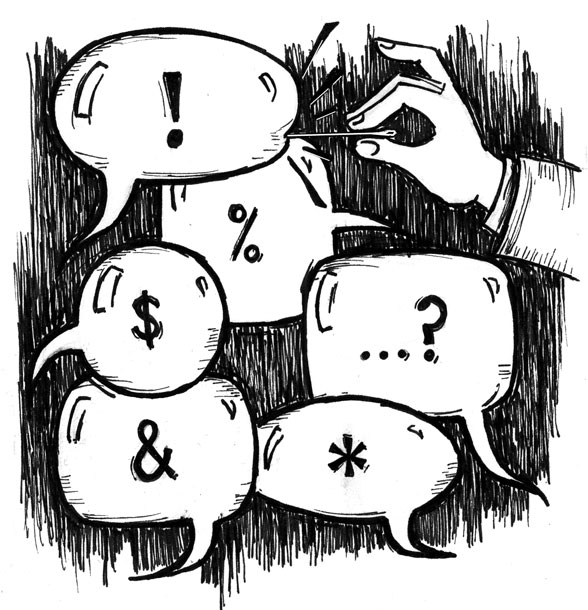
Keep public space open
University is where we teach students to confront difficult issues. It’s a space for dialogue, experimentation and public discussions. Lately, administrative paternalism at the University of Calgary has eliminated those values. Our lofty ideals get put on the shelf and students are left wondering what the administration doesn’t like about the things students have to say.
Over the summer, the Israel-Palestine conflict dominated headlines. Even in Calgary, a notoriously apathetic city, people took to the streets in a series of protests. Solidarity for Palestinian Rights (SPHR) and Calgary Hillel, the Jewish students’ association, are trying to continue the debate on campus.
Both groups had events cancelled by administration under the pretense of security concerns. Administration is right to call the issue heated. People are angry and emotionally involved. But excessive speculation isn’t a good enough reason to prevent groups from expressing themselves on campus.
At a July 18 protest, those protesting for Palestine swarmed a small counter-protest carrying Israeli flags. A fight broke out. Four men, none of them associated with SPHR, have since been charged by the police.
Universities are for public education. Keeping students safe on campus is important. But administration doesn’t have the right to regulate our conversations just because they’re scared.
It’s unlikely that administration has a grand political scheme to manipulate public debate on campus. Instead, administration is acting hysterically on over-hyped information. They’re squashing debate to distance themselves from even the vague potential of conflict. Even the concern of potential trouble has administration stifling groups and flexing their control over public space.
The U of C hasn’t technically overstepped their bounds. Campus Security has the authority to police public space on campus and administration has the responsibility to ensure the safety of all students.
There are rules and regulations for a reason. But it’s not to stop students from talking about a major geopolitical event, especially one that inspires so much heated debate. Administration doesn’t seem to understand the spirit of the law, even when they’re within its limits.
Public safety is a big concern, but Campus Security has a bad habit of basing a lot of their decisions on hypotheticals. Breakdancers had been cutting it up on the stage in MacHall’s south courtyard for years before Campus Security decided there was a liability issue. An insurance case had never been brought before the university, but the dancers were still left without a space for months.
The administration uses rhetoric on public safety to push through actions they deem necessary. They’re used to dealing with students and they aren’t shy about wielding their authority. But if you want to stifle debate, concrete reasons soften the blow.
If there is a “heated” atmosphere on campus, it’s because administration is constantly feeding into one. SPHR was branded guilty by association after a fight broke out at a rally they organized this summer. Calgary Hillel had an event cancelled so administration could look fair and balanced.
The Calgary Gaza Public forum was billed as an information session where concerned Calgarians could get more information about charities in Gaza and pro-Palestinian activism in the city. Hillel planned to host American pastor and Christians United For Israel affiliate Scott Thomas to represent the pro-Israel side of the conflict.
100 people in a room discussing Operation Protective Edge is an event, not a news story. Administration creates conflict by cracking down on events that shouldn’t warrant their consideration.
Provost and vice-president academic Dru Marshall tried to frame the decisions as an issue of freedom of expression against safety and security. You might recognize the argument. The U.S. government likes to use it a lot. Such a lofty argument isn’t appropriate when compared to the reality of the situation on campus — students sitting in a room and talking about a long-standing conflict half a world away.
There’s also no proper process to appeal these decisions. All administration has to do is wait until students stop making a fuss. Students are left wondering what it was that pushed administration to stop them in the first place.
Sure, we’ve closed the book on some debates. White supremacists probably shouldn’t be allowed to use campus resources because they create a real danger for students. It’s just hard to see the logic of administration’s decisions when they crack down on everyone from breakdancers to pastors talking about Israel. The only clear reasoning to the decisions of our administration is a sense of paternalism.
Migrating the debate off campus doesn’t solve the concerns of our administration. Apparently with student activism, it’s out of sight, out of mind.
When it comes to controversy, the U of C is complacent. We shy away from potentially heated public debate. Denying the use of public space to students is one way to accomplish this. University is meant to test our beliefs and values and our public space should reflect this.
Chris Adams & Kate Jacobson, Gauntlet Editorial Board
